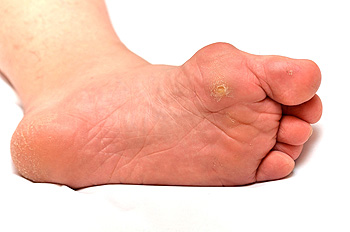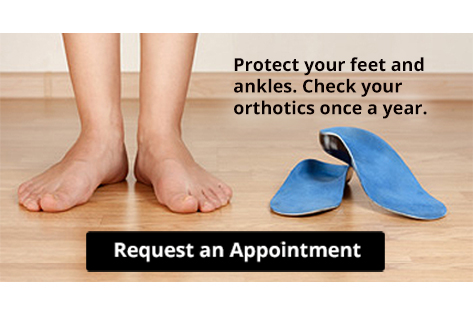Blog
Reminder: When Was the Last Time...?
Techniques For the Aged to Prevent Falling
 Falls among people aged 65 or older can be extremely serious and are considered a leading cause of injuries in that age group. A fall can be hard in lots of ways, and people may become depressed after experiencing one. This can result in lacking the desire to stay active. There are several things to be aware of in the aging person, including their vision becoming weaker, causing objects to become harder to see; this may possibly lead to a fall. Some medications may cause dizziness and dehydration, which may also be responsible for a fall occurring. It may be beneficial to ask older people when their last eye exam was and to ensure that their eyeglass prescription is current. Discussing medications currently being taken may be advised to identify any potential drug interactions; drug interactions can possibly cause an imbalance and contribute to a potential fall. Typically, checking the lighting in the home, in addition to having secure rails on the stairway and installing bars in the tub area, may all be effective ways in preventing falls in the home.
Falls among people aged 65 or older can be extremely serious and are considered a leading cause of injuries in that age group. A fall can be hard in lots of ways, and people may become depressed after experiencing one. This can result in lacking the desire to stay active. There are several things to be aware of in the aging person, including their vision becoming weaker, causing objects to become harder to see; this may possibly lead to a fall. Some medications may cause dizziness and dehydration, which may also be responsible for a fall occurring. It may be beneficial to ask older people when their last eye exam was and to ensure that their eyeglass prescription is current. Discussing medications currently being taken may be advised to identify any potential drug interactions; drug interactions can possibly cause an imbalance and contribute to a potential fall. Typically, checking the lighting in the home, in addition to having secure rails on the stairway and installing bars in the tub area, may all be effective ways in preventing falls in the home.
Preventing falls among the elderly is very important. If you are older and have fallen or fear that you are prone to falling, consult with Shaun J. Limon, DPM and Lisa Griffith-Limon, DPM from Limons Foot & Ankle Care. Our doctors will assess your condition and provide you with quality advice and care.
Every 11 seconds, an elderly American is being treated in an emergency room for a fall related injury. Falls are the leading cause of head and hip injuries for those 65 and older. Due to decreases in strength, balance, senses, and lack of awareness, elderly persons are very susceptible to falling. Thankfully, there are a number of things older persons can do to prevent falls.
How to Prevent Falls
Some effective methods that older persons can do to prevent falls include:
- Enrolling in strength and balance exercise program to increase balance and strength
- Periodically having your sight and hearing checked
- Discuss any medications you have with a doctor to see if it increases the risk of falling
- Clearing the house of falling hazards and installing devices like grab bars and railings
- Utilizing a walker or cane
- Wearing shoes that provide good support and cushioning
- Talking to family members about falling and increasing awareness
Falling can be a traumatic and embarrassing experience for elderly persons; this can make them less willing to leave the house, and less willing to talk to someone about their fears of falling. Doing such things, however, will increase the likelihood of tripping or losing one’s balance. Knowing the causes of falling and how to prevent them is the best way to mitigate the risk of serious injury.
If you have any questions, please feel free to contact our office located in Lakewood Ranch, FL . We offer the newest diagnostic and treatment technologies for all your foot care needs.
Reasons for Swollen Feet During Pregnancy
 Additional fluid developing in the body due to pregnancy is often the cause of swollen feet and ankles. Although it’s generally not harmful, it is typically uncomfortable, especially during warmer weather. There are several ways to ease the swelling, which may include wearing shoes that are comfortable, resting, elevating the feet, and doing your best to eliminate long periods of standing. Performing foot exercises may also be beneficial in reducing swelling and preventing cramps. Some of these may include pointing, flexing, and rotating your foot several times, thus promoting improved circulation. Occasionally, swelling in the feet may be a symptom of more serious conditions. If you have swelling in your feet, make sure to see a doctor.
Additional fluid developing in the body due to pregnancy is often the cause of swollen feet and ankles. Although it’s generally not harmful, it is typically uncomfortable, especially during warmer weather. There are several ways to ease the swelling, which may include wearing shoes that are comfortable, resting, elevating the feet, and doing your best to eliminate long periods of standing. Performing foot exercises may also be beneficial in reducing swelling and preventing cramps. Some of these may include pointing, flexing, and rotating your foot several times, thus promoting improved circulation. Occasionally, swelling in the feet may be a symptom of more serious conditions. If you have swelling in your feet, make sure to see a doctor.
Pregnant women with swollen feet can be treated with a variety of different methods that are readily available. For more information about other cures for swollen feet during pregnancy, consult with Shaun J. Limon, DPM and Lisa Griffith-Limon, DPM from Limons Foot & Ankle Care. Our doctors will attend to all of your foot and ankle needs.
What Foot Problems Can Arise During Pregnancy?
One problem that can occur is overpronation, which occurs when the arch of the foot flattens and tends to roll inward. This can cause pain and discomfort in your heels while you’re walking or even just standing up, trying to support your baby.
Another problem is edema, or swelling in the extremities. This often affects the feet during pregnancy but tends to occur in the later stages.
How Can I Keep My Feet Healthy During Pregnancy?
- Wearing orthotics can provide extra support for the feet and help distribute weight evenly
- Minimize the amount of time spent walking barefoot
- Wear shoes with good arch support
- Wear shoes that allow for good circulation to the feet
- Elevate feet if you experience swelling
- Massage your feet
- Get regular, light exercise, such as walking, to promote blood circulation to the feet
If you have any questions please feel free to contact our offices located in Bradenton and Lakewood Ranch, FL . We offer the newest diagnostic and treatment technologies for all your foot and ankle needs.
Read more about Pregnancy and Foot HealthHow to Prevent Corns
 Coupled with friction, an excessive amount of pressure on the feet is the most probable cause of corns. Corns can cause the skin to become dry and hardened; the skin’s consistency can also become soft and rubbery, which most often occurs between the toes. Infections can be common for patients with poor circulation or diabetes, and treatment may be necessary to prevent complications. Many options are available for treating corns. Pumice stones are an effective way to remove thickened skin from the foot, though if used incorrectly they can cause damage. The use of foam wedges between the toes may also be recommended to relieve pressure from soft corns. Wearing supportive shoes, preferably with a low heel, may be helpful as well. A consultation with a podiatrist is advised for a diagnosis and assessment of any underlying causes of corns.
Coupled with friction, an excessive amount of pressure on the feet is the most probable cause of corns. Corns can cause the skin to become dry and hardened; the skin’s consistency can also become soft and rubbery, which most often occurs between the toes. Infections can be common for patients with poor circulation or diabetes, and treatment may be necessary to prevent complications. Many options are available for treating corns. Pumice stones are an effective way to remove thickened skin from the foot, though if used incorrectly they can cause damage. The use of foam wedges between the toes may also be recommended to relieve pressure from soft corns. Wearing supportive shoes, preferably with a low heel, may be helpful as well. A consultation with a podiatrist is advised for a diagnosis and assessment of any underlying causes of corns.
If you have any concerns regarding your feet and ankles, contact Shaun J. Limon, DPM and Lisa Griffith-Limon, DPM of Limons Foot & Ankle Care. Our doctors will treat your foot and ankle needs.
Corns: What Are They? and How Do You Get Rid of Them?
Corns can be described as areas of the skin that have thickened to the point of becoming painful or irritating. They are often layers and layers of the skin that have become dry and rough, and are normally smaller than calluses.
Ways to Prevent Corns
There are many ways to get rid of painful corns such as wearing:
- Well-fitting socks
- Comfortable shoes that are not tight around your foot
- Shoes that offer support
Treating Corns
Treatment of corns involves removing the dead skin that has built up in the specific area of the foot. Consult with Our doctors to determine the best treatment option for your case of corns.
If you have any questions please feel free to contact our offices located in Bradenton and Lakewood Ranch, FL . We offer the newest diagnostic and treatment technologies for all your foot and ankle needs.
Read more about Corns: What Are They, and How Do You Get Rid of Them
